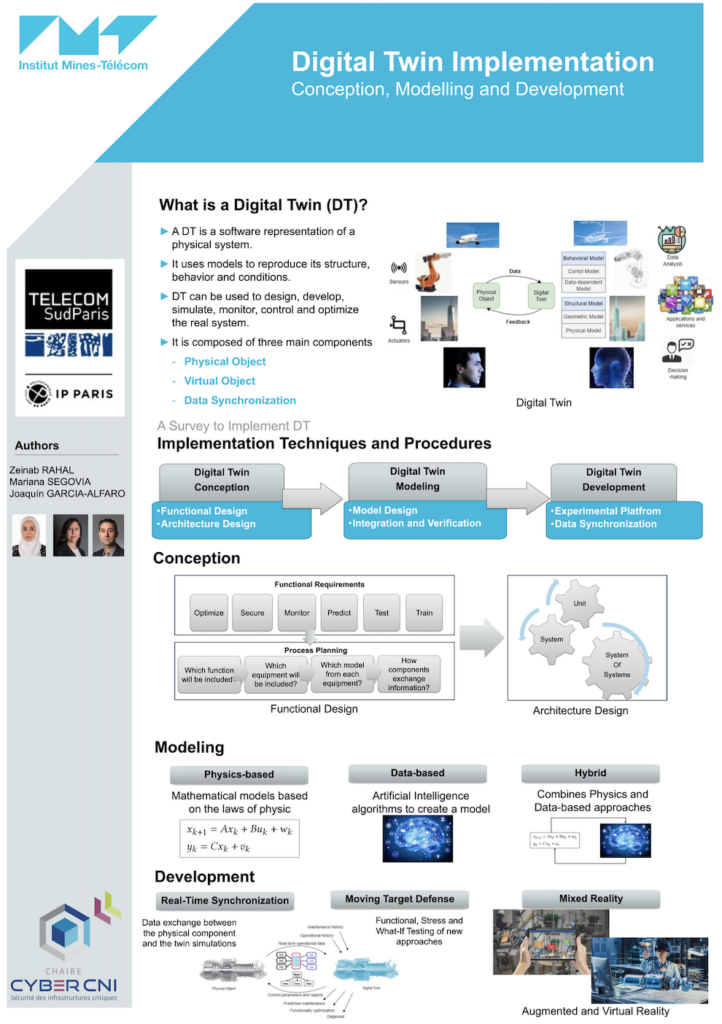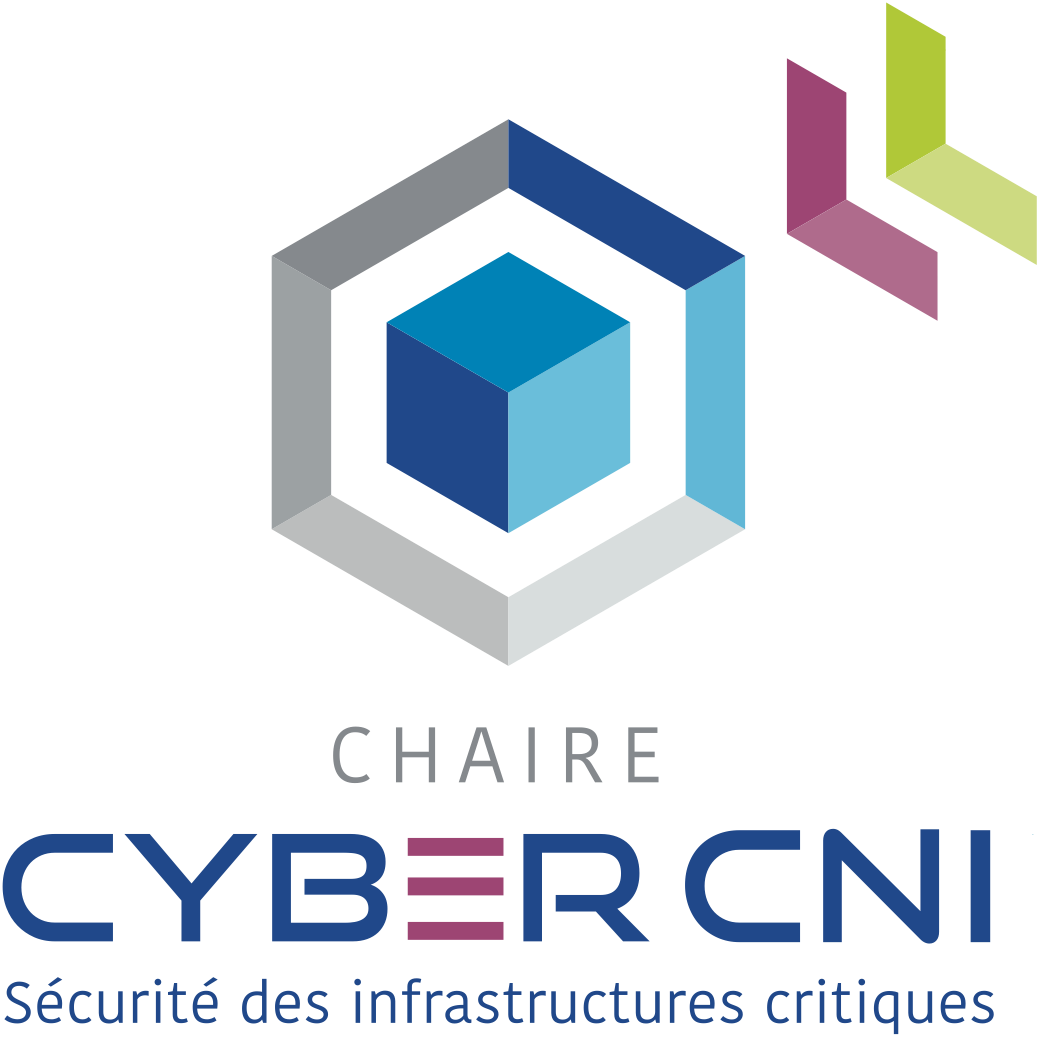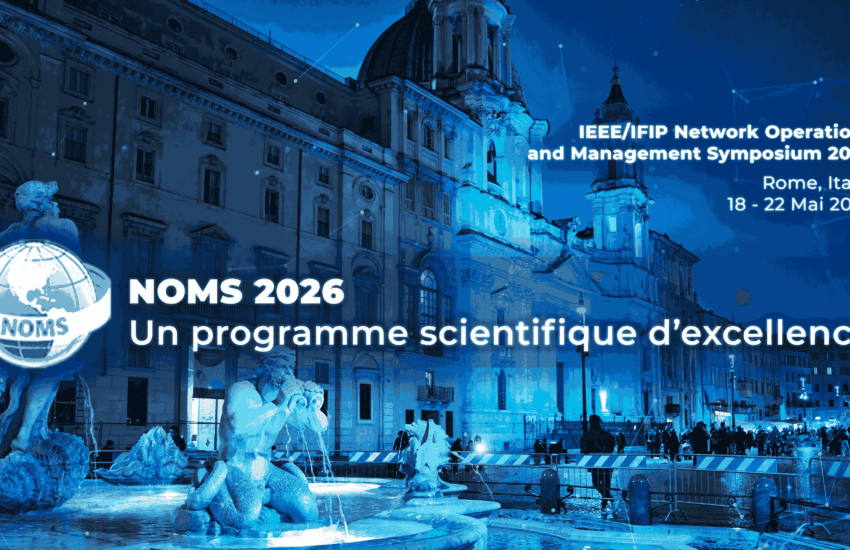IMT Symposium: Zeinab, Mariana & Joaquin (TSP), “Digital Twin Implementation: Conception, Modelling and Development”

At the occasion of the IMT symposium on “Crisis Management and Digital Technologies: new Threats and new Solutions”, PhD student Zeinab Ibrahim-Rahal together with Postdoctoral Fellow Mariana Segovia and Professor Joaquin Garcia-Alfaro presented a poster on their research work entitled: “Digital Twin Implementation: Conception, Modelling and Development”.
Digital Twins (DT) relay on the use of virtual models, mapping physical objects over virtual spaces. Both physical and virtual layers exchange information to monitor, simulate, predict, diagnose and control the state and behaviour of, e.g., industrial objects. DTs can supply a system with information and operating status to create new business models, decision support systems and optimize existing operations. In this research work conducted at Télécom SudParis, Zeinab, Mariana and Joaquin have been exploring methodologies to build, among other resources, realistic datasets from DTs. The starting ideas relay on determining design methodologies to create and connect physical objects together with virtual environments. Their work started with a selection of functional requirements, followed by an exploration of specific architectures, models, data synchronization methods and implementation tools, to integrate and verify the exchanges between the two aforementioned layers. Some more information is available here.
IMT Symposium on Crisis Management and Digital Technologies: new Threats and new Solutions
The IMT is developing research and training activities at the crossroads of cybersecurity and crisis management, enabling it to train company personnel in these subjects and to develop innovative cyber risk management solutions.
The objective of this conference was to take stock of these research activities and to identify some strategic elements that IMT will pursue in the future…
Crises have long been accidental or caused by human error. The increasing digitization of our infrastructures means that crises can now be generated by cyber-attacks, as evidenced by recent incidents (shutdown of certain hospitals, factories, or infrastructures under the impact of ransomware). Some of these incidents are clearly of a nature that puts the survival of the organization that is the victim of the attack at stake.
Beyond the management of cyber-attacks against information systems, we are therefore observing new needs for the management of crises of digital origin, involving the company’s management teams, to understand the consequences of cyber-attacks (for example on personal data), to comply with complex regulations, to learn how to communicate, to mitigate the impact of the attacks on the organization, and to return to a mode of operation in line with expectations.
Digital tools are also essential to manage certain crises, as shown by the development of contact tracing applications during the COVID crisis, and they are also subject to debate, both for their impact on civil liberties and the epidemiological effectiveness of the technologies deployed.
About the chaire Cyber CNI
The IMT Cyber CNI Chair (cyberCNI.fr) is hosted by IMT Atlantique on the Rennes campus. It studies the security of critical infrastructures under the direction of Marc-Oliver PAHL and with the collaboration of its industrial partners Airbus Cybersecurity, Amossys, BNP Paribas, EDF, Nokia Bell Labs and SNCF, as well as institutional partners such as the Pôle d’Excellence Cyber and the Brittany region, and academic partners IMT Atlantique, Télécom ParisTech and Télécom SudParis.









